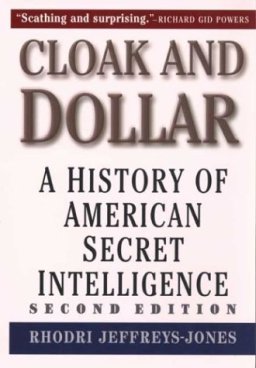Lobster Issue 24 (December 1992)
[…] shah of Iran and Anwar as-Sadat lost their countrymen’s respect because both were (wrongly) seen as agents of Washington.’ Wrongly, huh? Depends on how he is using ‘agent’. Do I think either the shah or Sadat was an actual case officer-run U.S. intelligence ‘agent’ — no, I don’t. But neither, I’m pretty sure, do […]
Lobster Issue 31 (June 1996)
[…] 1985 drug scandals. (Jose Antonio Zorrilla, the ex-DFS chief arrested and indicted in 1989 for murder, was in 1963 private secretary to Fernando Gutierrez Barrios, the DFS agent whose signature attested to the validity of the most radically altered version of Duran’s statement.) At least two ex-DFS officers who were also former CIA agents […]
Lobster Issue 33 (Summer 1997)
[…] North, and Felix Rodriguez, later became familiar names during the Iran-contra scandal of the 1980s. More obscure was one Michael Hand, who had been a CIA contract agent in Laos. In 1973, Hand and his partner Frank Nugan established the Nugan Hand Bank in Sydney. A slew of top-level retirees from the CIA and […]
Lobster Issue 43 (Summer 2002)
[…] in Oswald’s demi-monde of KGB agents and Cuban exiles…..’ We’ve had supporters of Castro and now he gives us KGB agents! Which ones, Professor? The only KGB agent in the story that I can recall is the KGB officer Kostikov who was under diplomatic cover in the Soviet embassy in Mexico City. Oswald – […]
Lobster Issue 37 (Summer 1999)
[…] a famous Estonian footballer, called Evald Mikson. Mikson, learned Sanden, had worked with the Germans when they invaded Estonia in 1941, and had interrogated a captured Estonian agent of Soviet military intelligence, the GRU. (One may imagine that in such circumstances – an Estonian working for the Nazis – such an ‘interrogation’ was, as […]
Lobster Issue 40 (Winter 2000/1)
[…] Hambling also asks why fuel air explosives were used in Operation Black Cat. One explanation might be that planners were concerned that a residue of VX nerve agent might have been blown back towards coalition troops and, therefore, utilised air fuel explosives to incinerate every last surviving particle of nerve agent. The best approach […]
Lobster Issue 30 (December 1995)
[…] analyst Barry Rubin comments, ‘only five Americans with a half-dozen Iranian contacts had organised the entire uprising’.(64) The British input, however, had clearly been significant. One Iranian agent of the British – Shahpour Reporter, who subsequently served as adviser to the Shah – was later rewarded with a knighthood, before becoming a chief middleman […]
